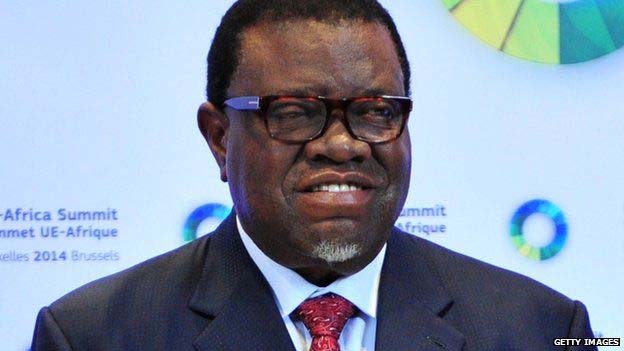From REBECCA MUSHOTA
in Windhoek, Namibia –
THE Consultative Summit of the African Union (AU) Committee of the 10 Heads of State and Government (C10) on the reform of the United Nations (UN) Security Council has resolved to continue to advocate a permanent position in the Council through intensified engagement with member States and countries from other regions.
The C10 resolved to continue with its high-level outreach engagements with interest groups and member States to consolidate and build on the gains made so far.
The resolutions were made at the Windhoek Consultative Summit held yesterday at State House by the C10 members here.
The member countries appointed by the AU to look into African quest to have permanent representation at the UN Security Council are Zambia, Sierra Leone, Namibia, Equatorial Guinea, Libya and Congo.
Others are Senegal, Kenya, Algeria and Uganda.
Four presidents attended the Summit and these were President Edgar Lungu, who hosted last year’s C10 meeting in Livingstone, this year’s host Hage Geingob, the C10 coordinator and Sierra Leone leader Ernest Koroma, and Equatorial Guinea President Teodoro Nguema Mbasogo.
According to the final draft of the resolutions of the meeting, the C1O members also resolved to reject any intermediate, transitional or intermediary approach as an offer to address the special needs of Africa on grounds that they had so far fallen short of appreciating the non-representation of the continent in its current structure.
Earlier, Dr Koroma, in his opening remarks, said Africa believed time had come to fulfill the Ezulwini Consensus at which it was decided to demand for a permanent seat on the UN Security Council.
“Africa demands UN Security Council reforms not only to redress the injustice of being the only continent without permanent representation in that topmost global decision-making body, but mainly because we also believe it shall be good for the world, it shall make the council more democratic, give it greater legitimacy, and fully recognise the reality of a resurgent Africa that wishes to lend its strength and longstanding wisdom and values to the people of the world,” he said.
Dr Koroma said Africa had first-hand knowledge of these challenges from terrorism, armed conflict, refugee crises, human and drug trafficking, piracy and climate change.
He said although other interest groups and Africa agreed that Africa needed representation on the Security Council, they differed on the extent to which Africa should be represented.
Africa, he said, should unite to push for the agenda to have permanent representation.







